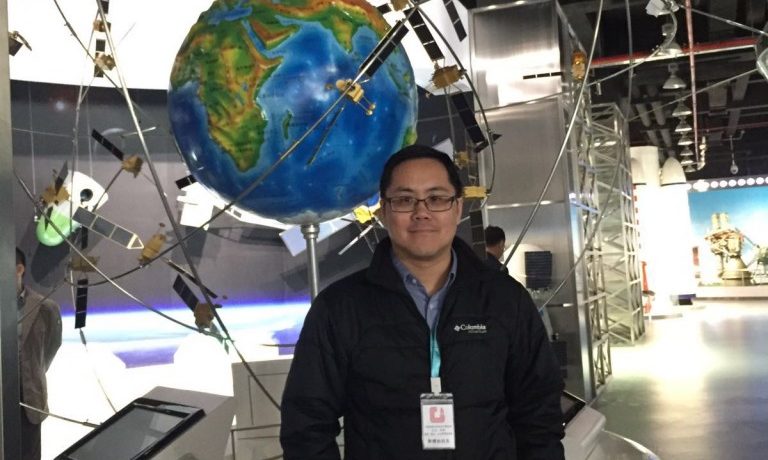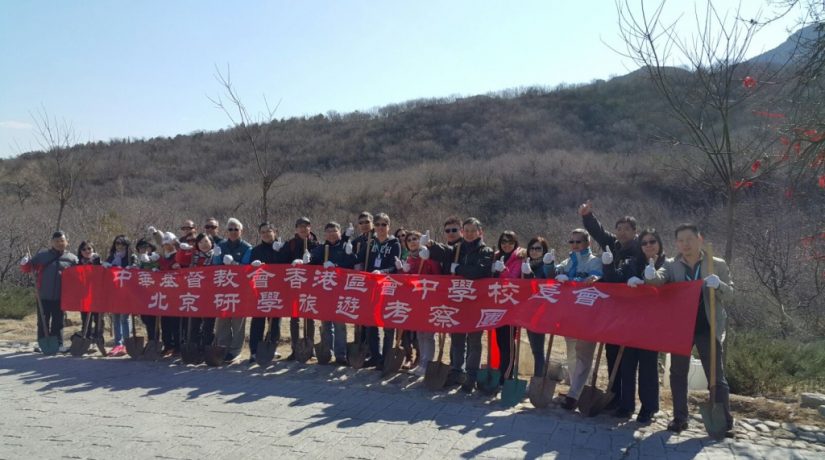I participated in the “Beijing–Xian Education, History, Cultural Learning Tour” organised by the Association of Principals of Secondary Schools, the Hong Kong Council of the Church of Christ in China from 24th to 28th March, 2016. This journey gave me a fruitful and rewarding experience. Apart from knowing more about the two big cities in China: Beijing and Xian, I also had a deeper understanding of how students experience and learn in the study tour. These experiences help provide more quality recommendations and areas for improvement for the organisation of school exchange programmes and educational tours in future. It is hoped that each and every one of the participating students can have impressive and inspirational learning.
Rethinking of Study Tour
Mr. Xi Jinping, the President of the People’s Republic of China, mentioned in his congratulatory message at the Opening of the International Conference on Education Informatization 23 in Qingdao, Shandong in May, 2015 that ‘Learning for Everyone, Learning Anywhere, Learning Anytime’. It pinpoints that any person can learn in any places and at any time, which I would call “Ubiquitous Learning”. Thus, study tour is a feasible way to have access to learning opportunities. Indeed, the prevalent objective of a study tour should be focused on “learning”. ‘Learning’ must remain as the core, instead of touring, travelling or sightseeing, in any design of or preparation for a study tour.
However, students may ask: “What to learn?”, “Why do we need to learn?”, “How to learn?” The answers to these questions would be different under different circumstances or conditions. What I would like to do is to propose some general principles for education colleagues to enhance the ‘learning’ component in their future planning and organisation of study tours.
Why Can’t Students Benefit from the Study Tour?
The importance of study tour lies in an extension of one’s horizons, an expansion in cultural understanding, an enhancement of personal experience, an enrichment of knowledge base, and the profound reflection upon life. As the saying goes, ‘He that travels far knows much.’ Students must benefit from going beyond the classroom and travelling in foreign countries. However, why did students fail to benefit from the study tours? In contrast, they have wasted their time and money on merely acquiring a feeling of “being there” without any quality learning.
After all, the main reason is all about the design. Take Life-wide Learning (LWL) as an example, it was first implemented in Hong Kong a few years ago, advocating for learning beyond the classroom so that students can enjoy experiential learning in different environments. As a result, many schools worked hard to take the classroom outside and visit museums, countryside, theme parks, non-governmental organisations, etc. However, most students only had the experience of going out without any learning. The underlying cause was that there was no appropriate design of and preparation for the learning targets. At most, students were given a completed worksheet. Worse still, these students were treated as if they were a flock of sheep being herd.
How to Maximize the Student Benefits in Study Tour?
The personal experience of this simulated study tour showed me that the most important factors are student interest, autonomy, and choice. In order to encourage students to learn, their interests must be aroused, rather than implementing a planned curriculum. Letting students have the right to choose is a very good method because it can trigger their intrinsic motivation. On the contrary, if the whole tour is indoctrinated by the tour guide (Teachers also have this fault), students will lose interest. More able students will pretend listening, but actually they are daydreaming. Less able students will nap or chat with other classmates. Some students may even behave badly, talk loudly, and disrupt the order.
Hence, arousing student learning interest and letting students self-select the learning contents within controllable scope will not only boost their learning motivation but also increase their sense of ownership of what they are learning. These can directly enhance their learning effectiveness, and ultimately reach the objectives of self-regulated (or self-directed) learning.
Three Stages of Study Tour Design
The design of study tour can be divided into three stages: early stage, middle stage, and final stage. The content consists of ‘preparation, discussion, reflection and demonstration’. Before the study tour, students can be asked to do some preparations. For examples, they can do some preliminary online searching for the destinations of the study tour. They can also watch some related video clips (e.g. Flipped Classroom). Moreover, they can be asked to raise questions about the itinerary of the visit. These are some examples for the preparation that facilitate students to have a certain understanding of the destinations of the study tour and help them know more about the details involved.
Apart from the visit, the interview, and the personal experience, it is more important for students to make use of their prior knowledge and to engage in synthetic learning during the study tour. In this way, the previous preparations will become meaningful. One of the strategies is ‘learning with questions’. Students are more sensitive to their own questions. Once they find the answers during the tour, they will be very excited and satisfied, and feel the joy of learning. Their learning motivation will be vastly increased. Furthermore, it is very important to let students have some meaningful group discussion on the topics of study tour. Not only can this increase the interaction among the students, it can also help them solve the problems and deepen their learning.
Finally, after the study tour, students should be given time for reflection and integration so that their learning can be reinforced and consolidated. Certainly, for a perfect ending of the study tour, they should be given opportunities to demonstrate what they have learnt, to share their learning outcomes, and to exchange ideas and insights after returning to school.
Make Good Use of E-learning to Facilitate Interactive Exchange
In order to cope with the technology advancement, mobile devices and internet applications are essential for study tour nowadays. E-learning has also become a major trend in learning. Not only is smart phone popular, it also has a wide range of functions. On the one hand, it can be used for photo taking and video shooting; on the other hand, it can also be used for accessing useful information, such as electronic map, Putonghua translation tools, etc. It makes learning easier and more convenient. The latest e-learning strategies even allow the use of ‘applications’ (Apps) for assisting learning, e.g. study tour apps, interactive discussion forums, and knowledge construction programmes. These can effectively create an interactive environment that facilitates teacher-student and student-student interactions as well as within-group and between-group interactions.
In conclusion, study tour should be focused on ‘learning’. It is necessary to have the three-stage design. There should be a paradigm shift from one-way indoctrination to autonomous selection and interactive exchange. In addition, it should take as much advantage as possible of electronic tools to facilitate learning. In this way, study tour can lead to authentic and effective learning outcomes.
Mr. Cheng Lai-lam, Principal

 中文
中文

